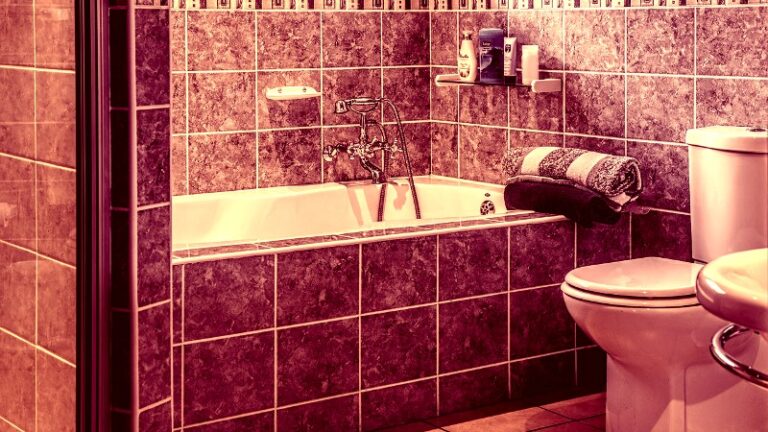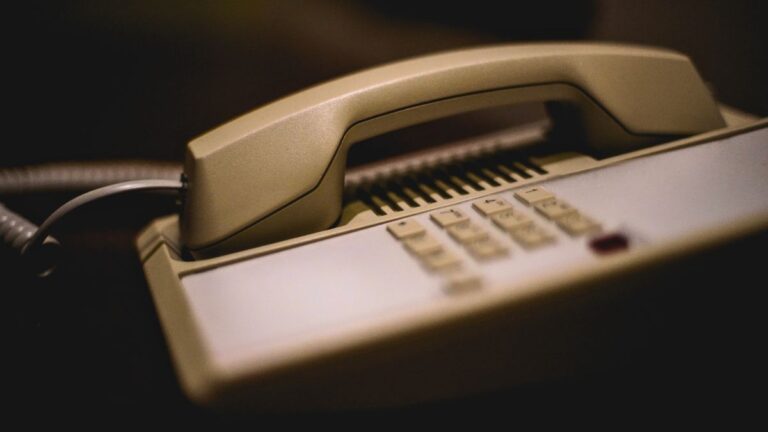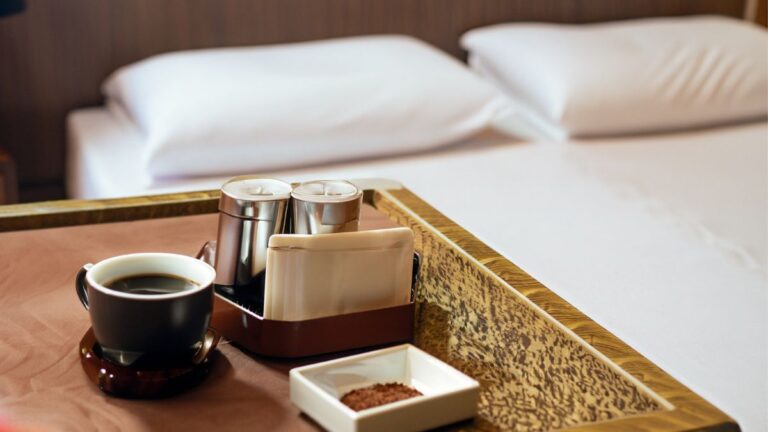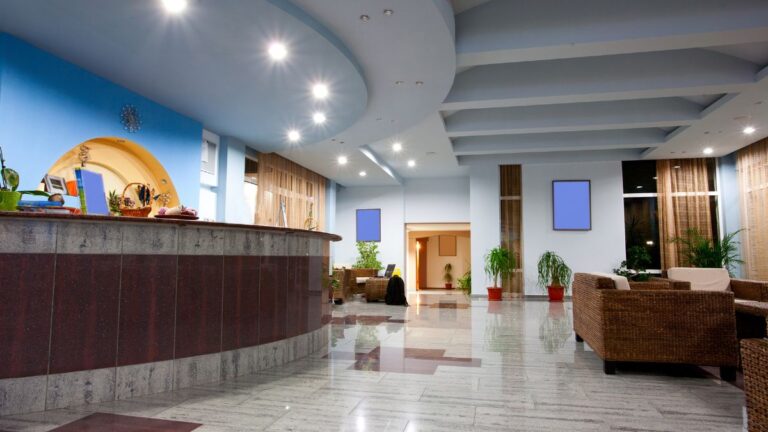Are Motels Open 24/7? Separating Fact from Fiction
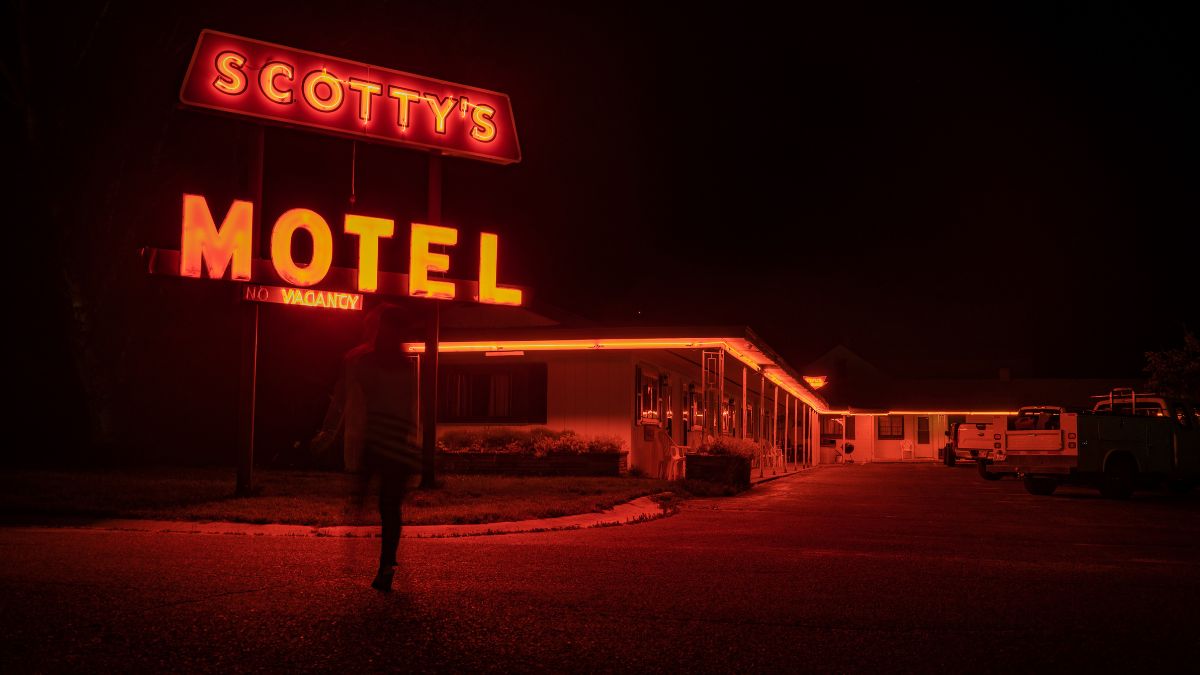
As participants in Amazon Associates and other programs, we earn from qualifying purchases. This comes at no additional cost to you. For more details, see our Affiliate Disclosure.
There’s an enduring belief that motels, those ubiquitous roadside accommodations, operate around the clock, serving weary travelers 24/7. But how much of this belief is grounded in fact, and how much is simply folklore?
In this article, we aim to cut through the murkiness and establish a clearer understanding of motel operations. Join us as we separate fact from fiction and shine a light on the real-world practices of motels, answering the question: Are motels open 24/7?
Origins of the 24/7 Motel Myth
The origins of the 24/7 motel myth are tied to the classic Americana imagery of the open road. With the advent of interstate highways in the mid-20th century, America saw an exponential increase in road travel. As families, truck drivers, and adventure-seekers hit the road, a need for convenient, inexpensive overnight accommodations grew. Motels, short for “motor hotels,” emerged as the solution.
These establishments were strategically positioned along busy highways, serving as a beacon of rest for road-weary travelers. Their signage would often highlight their “open” status, a feature which not only referred to room availability but also a welcoming atmosphere regardless of the hour. This 24-hour presence was essential for those driving long distances or working atypical hours, such as truck drivers.
The image of a motel with its lights on throughout the night soon became an iconic part of American culture. Film, literature, and art have perpetuated this image, reinforcing the notion of motels as always-open establishments. Yet, while some motels do indeed operate around the clock, it is not a universal practice. This image, combined with a lack of understanding of how motels operate, has led to the 24/7 motel myth that persists today.
Operational Realities: A Peek Behind the Curtain
In reality, motel operations can be far more complex than the romanticized image of an always-open haven for tired travelers. While it’s true that many motels do aim to be accessible as much as possible to accommodate guests, the 24/7 operations aren’t a hard and fast rule for every establishment.
One key point to understand is that while a motel may have rooms available for check-in at any hour, this does not necessarily mean all of its services are available round the clock. For example, housekeeping, maintenance, and front desk services may have set hours, often corresponding with typical business hours or slightly extended to cater to late arrivals or early departures.
Additionally, smaller or family-run motels may not have the staff or resources to maintain a 24/7 operation. In such cases, there might be specific check-in and check-out times, similar to those you’d find at traditional hotels.
It’s also essential to note that the motel’s location can influence its operating hours. Motels located along busy interstates or near airports may indeed run 24/7 to accommodate guests’ varied travel schedules. However, motels in quieter or less traveled areas may not see the need for such extensive hours.
Factors Influencing Motel Hours of Operation
A number of variables can influence a motel’s hours of operation, each of which contributes to the decision-making process of whether to remain open around the clock or follow a more traditional schedule. Here are some key factors:
- Location: As previously mentioned, a motel’s location plays a significant role in determining its operational hours. Those located along busy highways, near airports, or in bustling urban areas are more likely to operate 24/7 to accommodate travelers’ varied schedules.
- Demand: The volume and type of clientele can influence operational hours. High-traffic areas with a steady influx of guests are more likely to justify extended or round-the-clock operations. Conversely, in areas with lower demand, it may not be economically feasible to maintain a 24/7 schedule.
- Staffing: Operating around the clock requires a substantial workforce. Larger motels or chains may have the resources to staff their establishments at all hours. However, smaller or family-owned motels may have more limited personnel, which can impact their ability to operate 24/7.
- Security: Safety considerations can also affect operational hours. In certain areas, motels may choose to limit their hours or implement secure entry procedures during the night for the safety of guests and staff.
- Local Regulations: Local laws and regulations can influence operational hours. Some areas may have restrictions on noise or business operations during certain hours, which motels must adhere to.
- Operational Costs: Keeping a motel open 24/7 incurs additional costs, including higher energy bills, staffing costs, and potentially more maintenance due to increased usage. These costs need to be weighed against the potential revenue gained from extended hours.
By understanding these factors, both travelers and potential motel owners can have a more realistic view of the operational realities of running or staying at a motel.
24/7 Availability: Exceptions to the Rule
Despite the varying operational hours in most motels, there are indeed exceptions where 24/7 availability is the norm. These instances can largely be attributed to the specific demands of their location, clientele, and business model. Let’s explore a few of these exceptions:
Major Chains: Larger motel chains often maintain 24/7 operations due to their substantial workforce and broader resources. These establishments are designed to accommodate a high volume of guests at all hours and often offer streamlined check-in and check-out processes for added convenience.
High-Traffic Areas: Motels situated along busy interstates, near airports, or in bustling urban areas often operate around the clock. The constant influx of travelers in these locations makes a 24/7 schedule both practical and profitable.
Specialized Clientele: Some motels cater to specific clientele, such as truck drivers or other professionals with irregular schedules. These establishments understand the unique demands of their guests and provide 24/7 operations to meet these needs.
Automated Check-In Systems: Advances in technology have allowed some motels to operate 24/7 without the need for constant staffing. Automated check-in systems, such as kiosks or mobile apps, enable guests to access their rooms at any hour, making it feasible for these motels to offer round-the-clock service.
While these exceptions exist, it is always prudent for travelers to verify a motel’s operating hours in advance. A quick call or online check can save potential hassles and ensure a smooth check-in experience, regardless of arrival time.
Impact of Technology on Motel Accessibility
Technology has dramatically influenced the motel industry, particularly in terms of accessibility and service availability. Its impact can be seen in various aspects of motel operations:
Online Reservations: With the proliferation of the internet and smartphones, travelers can book rooms at any time of the day, from anywhere in the world. This constant accessibility can create the perception of a 24/7 operation, even if the motel’s front desk or other services have set hours.
Automated Check-in and Check-out: The advent of self-service kiosks and digital key technology allows guests to check in and out of their rooms without needing to interact with a front desk employee. This tech advancement enables motels to provide services beyond their traditional operational hours.
Mobile Apps: Many motel chains have developed mobile applications that allow guests to handle everything from booking to check-in, room service, and even unlocking their room. This has made it easier for guests to access services whenever they need them.
Security: Technology has also improved motel safety. Key cards, security cameras, and around-the-clock surveillance systems allow motels to provide secure accommodations even during off-hours.
Customer Service: Chatbots and AI-powered customer service platforms can respond to guest inquiries at any time. While this doesn’t replace the personalized service of a human employee, it does offer guests a level of 24/7 support.
Smart Rooms: IoT technology has led to the development of smart rooms, where guests can control everything from lighting to temperature via an app or in-room system, providing a level of comfort and control that doesn’t rely on staff availability.
While technology has indeed expanded accessibility and services, it’s important to note that it doesn’t necessarily mean a motel is operating 24/7 in the traditional sense. It’s a tool that assists in expanding service hours and guest control, shaping the perception of constant accessibility.
Pros and Cons of 24/7 Motel Operations
Running a 24/7 operation can offer a significant advantage for motels, particularly in competitive or high-traffic areas. However, there are also certain drawbacks to consider. Let’s delve into both the pros and cons of maintaining a round-the-clock operation:
Pros:
- Customer Convenience: Offering a 24/7 operation ensures guests can check in or out at their leisure, accommodating different travel schedules and providing a higher level of convenience.
- Increased Revenue: Extended hours can lead to increased revenue, as the motel can accommodate more guests, especially those who travel late at night or early in the morning.
- Competitive Edge: A 24/7 schedule can provide a competitive advantage, particularly in areas where other accommodations have limited operational hours.
- Enhanced Reputation: Being available to serve guests at all hours can enhance a motel’s reputation for excellent customer service and flexibility.
Cons:
- Higher Operational Costs: Staying open round the clock means higher energy costs, more wear and tear on facilities, and potentially higher staffing costs.
- Staffing Challenges: It can be difficult to find employees willing to work night shifts, and managing a 24/7 staff schedule can be complex.
- Security Concerns: The risk of security incidents may increase during nighttime hours, which might require additional security measures or staff.
- Regulatory Restrictions: Some regions may have restrictions on noise or business activities during certain hours, limiting the feasibility of a 24/7 operation.
In conclusion, the decision to operate a motel 24/7 should be made carefully, considering both the potential benefits and the associated challenges. For travelers, understanding these realities can provide a more informed perspective when planning accommodations.


